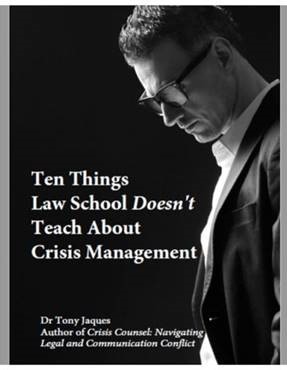


Is the CEO Really Your Best Crisis Spokesperson?
From our friend and colleague in Australia, Tony Jaques…
Who should speak in a crisis? That deceptively simple question can help determine whether an organisation’s reputation is enhanced or irreparably damaged when things go wrong. And behind that question are two common errors in crisis management.
The first error is the idea that “speaking with one voice” in a crisis means there should be only one spokesperson. In fact, it’s sometimes a real advantage to have several different spokespersons, especially when it comes to detailed technical or operational areas or if the crisis is prolonged. Throwing the entire burden of principal spokesperson on just one individual for weeks or even months not only risks burn-out but increases the chance of some unfortunate gaffe.
Speaking with one voice actually means the message and tone remain constant across all the designated spokespersons — one calm, consistent, qualified and cohesive voice.
The other common error is the belief — typically favoured by journalists — that the spokesperson should invariably be the CEO or the most senior executive in charge. Sadly, some CEOs perform credibly when announcing corporate results or in closely scripted interviews, but stumble badly under the pressure of a crisis.
For the rest, click here.
——————————————-
Our good friend and colleague, Dr. Tony Jaques, is a prolific writer and commentator on risk, issues and crisis management. Based in Melbourne, Australia, he consults and has written three books in the field, also producing his must-read newsletter, Managing Outcomes.
Tony’s latest book is titled Ten Things Law School Doesn’t Teach About Crisis Management. For a free copy, send your name and email to orders@issueoutcomes.com.au
